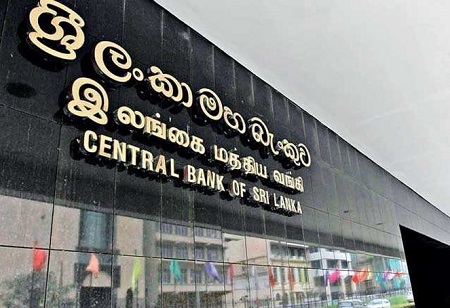
Sri Lanka Central Bank Likely to Unchange Rates Next Week After 100 bps Hike Earlier

 At a policy meeting the following week, Sri Lanka's central bank is anticipated to leave interest rates steady, one month after a 100 basis point increase in anticipation of a bailout package from the International Monetary Fund (IMF).
At a policy meeting the following week, Sri Lanka's central bank is anticipated to leave interest rates steady, one month after a 100 basis point increase in anticipation of a bailout package from the International Monetary Fund (IMF).
Even if it is trending downward, inflation is still slightly above 50%, and 2023 growth is projected to be 3% lower as the nation battles to recover from its worst financial crisis in more than seven decades.
In its third policy rate decision of the year, the Central Bank of Sri Lanka (CBSL) is expected to hold rates, according to twelve out of the fourteen analysts and economists.
In order to control inflation, the central bank increased interest rates by a record 950 basis points in 2017 and by 100 bps on March 3.
To reduce inflation, which reached 50.6% in February, and preserve investor confidence as it begins the challenging process of debt restructuring, analysts said Sri Lanka needs to maintain high interest rates.
"Inflation needs to come down to about 15 per cent or below policy rates before they start lowering interest rates," said Shehan Cooray, head of research at Acuity Stockbrokers.
"Even with lower inflation, Sri Lanka will still have to keep interest rates quite high to maintain a cap on imports, manage reserves and bridge financing gaps over the next three years. Rates will not drop significantly this year."
As per economists, any rate easing will probably take place in September or October, coinciding with central bank estimates that inflation will reach a single digit level at the beginning of the third quarter.
Sri Lanka plans to finish restructuring a portion of its domestic debt by the end of May.
After the domestic debt operation, the financially precarious South Asian nation will also begin formal negotiations for the debt it owes to bilateral creditors and foreign bondholders. It plans to finish those parallel debt negotiations by September, in time for the first IMF review.

